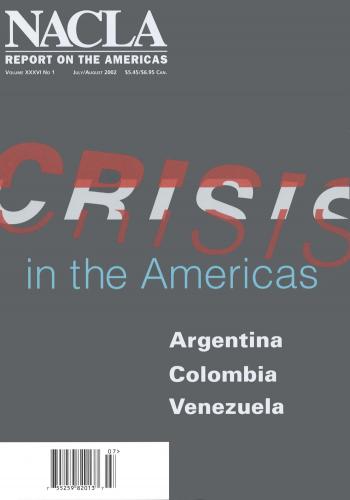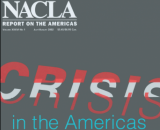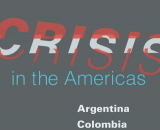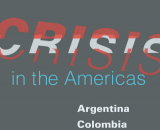Report
A grassroots rebellion is taking place in Argentina with the common refrain "que se vayan todos," or "throw them all out." It is directed against the entire political leadership of the country as well as the International Monetary Fund (IMF) and transnational companies doing business in the country.
Steve Ellner & Fred Rosen
In the late afternoon of Thursday April 11, a huge anti-government march, perhaps half a million strong, wended its way through the streets of Caracas, first to the headquarters of the state-owned Venezuelan Oil Company (PDVSA) to lodge its protest against President Hugo Chávez’s firing of the oil company’s chief executives, then to the presidential palace, Miraflores, to lodge its protest against Chávez’s rule in general.
"Until last December, we observed evidence of malnutrition in some 30 children per month. Today the monthly average is more than 40. When these children come in to the clinic, we notice the signs even before we actually begin examining them. Their eyes are huge, their hair has turned yellow and stiff, their bellies are swollen, they don’t respond to stimuli," says Argentine doctor Mario Martínez, director of the Primary Care Center of Villa Quinteros in the northern province of Tucumán.
In 1998, Colombians elected a presidential candidate who promised them peace. On May 26, 2002, they chose one who promised them security, Alvaro Uribe Vélez. In both cases, the Revolutionary Armed Forces of Colombia (FARC) had a preponderant role in determining those choices.
Luis Lander and Margarita López-Maya
Few things happen in Venezuela that don’t have to do with oil, either directly or indirectly. The country is one of the world’s main producers of petroleum products, and it plays a crucial role in the international energy market.
So this is how a modern coup d’etat is overthrown: almost invisibly, at the margins of the media. Venezuela returned to democracy despite a self-imposed media blackout of astonishing proportions. A huge popular revolt against an illegitimate regime took place while the country’s middle class was watching soap operas and game shows; television networks took notice only in the very final moments, and, even then, only once they were absolutely forced to do so.
The catastrophic collapse of the Argentine economy during the second half of 2001, and its accelerating decline during the first half of 2002, has created hardships of a scale and scope that fully justify concluding that the country is undergoing a "Second Great Depression."




